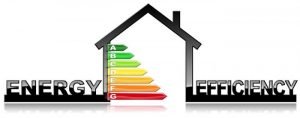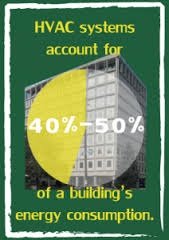Energy Efficiency Of Decentralized Vs. Centralized HVAC System
Regulating the temperature inside a building is a major concern for its owners. The design, costs, and work involved in providing optimal comfort to tenants need a lot of thought and planning. With the trend of green buildings in vogue, an owner has to decide which is more energy-efficient, a centralized HVAC system or a decentralized one. Each facility is different, and their requirements vary; therefore, the choice of an HVAC system must depend on several factors, which include:
 Size of the area
Size of the area- Total heat generated inside the enclosed space
- The preference of the developer
- Energy efficiency
- Initial costs for installing the system
- Cost of the system’s life cycle
- Maintenance costs
- Aesthetics
You can pick from a wide variety of centralized HVAC systems as well as decentralized systems. However, to ensure that you get the right one for your facility, it is best to contact Fischer Heating & Air and have one of our qualified and professional HVAC technicians work with you. You’re guaranteed high quality and prompt service, competitive pricing, and benefit from the extensive knowledge of our technicians.
Here are some pointers highlighting the salient features of a centralized HVAC system and a decentralized HVAC system. These will help when you’re discussing the options further with our HVAC technician.
vFactors That Come Into Play For Decentralized Vs. Centralized HVAC System

A centralized HVAC system is attractive to most facility owners because most of the mechanical equipment that is not visually appealing is hidden inside the penthouse or the building’s mechanical room. However, their performance can be lower during off-hours and partial load situations. Maintenance is easier since there is only one group of machinery that needs to be checked and serviced.
On the other hand, a decentralized HVAC system is expected to function better during varied conditions. This is achieved as it has the flexibility to service different parts of the building at selected times. Depending on the size of the building, such as a high-rise with a decentralized HVAC system, it can be a nightmare to maintain. Since this is modular and made up of many separate compressors, the amount of maintenance work is multiplied. It has the flexibility to deliver the right temperature individually. For example, a tenant can have a room or office cooler or warmer than the rest of the tenants. This requires a more complicated zoned implementation for a centralized HVAC system.
But What About Its Energy Efficiency
This being the focus of the discussion, let us point out that generally speaking, energy efficiency is higher with centralized HVAC systems although its initial cost is typically higher, so it’s not as cost-efficient in terms of acquisition cost. A decentralized HVAC system is cost-efficient; however, it is not energy-efficient, performance-wise.
Which One Would Be Your Choice
Each air conditioning system has its own set of pros and cons. In terms of upfront cost, the central air conditioning system is cheaper than a decentralized unit. Inefficient air distribution the decentralized HVAC system is better, which also lowers your energy cost. Decentralized systems of mini splits keep air cleaner, while air circulation is better with a centralized HVAC unit. Let’s discuss each aspect further.
The Efficiency Of The Unit
When you talk about energy efficiency, a decentralized HVAC system comes out as the winner. With this system, the air is streamed directly into the specific room you want to heat or cool because it can have one or more indoor air handlers. The air handlers are installed in the rooms that need heating or cooling, so you waste energy cooling the entire place.
In a centralized HVAC system, the entire house is cooled at once because of the ductwork, including rooms that are seldom used. Energy Star says that ducted air conditioning systems lose about 20-30% of the air due to poor duct connections, holes, or leaks.
Unit’s Design
When homeowners are meticulous about aesthetics, a decentralized air conditioning system poses a problem. Because the indoor air handlers are mounted either on the ceiling or wall of the selected rooms, it may not go well with the interior décor that already exists.
The ducts of the centralized HVAC system are hidden, including parts of the unit. Thus, the system is fully integrated into the design of the home’s interior. Since the ducts are discretely installed, it is a winner when it comes to design.
Consider also that a centralized HVAC system is noisier than a decentralized HVAC unit. If you are sensitive to noise, think about installing the latter. If you are not bothered by such noises, and you are after longevity, then opt for a centralized system.
Installation Of The Unit
Installation of the unit differs as well. A centralized unit needs ductwork, which, aside from being costly, takes time to complete. For modern homes requiring HVAC systems, a professional and licensed HVAC contractor is needed. However, a centralized unit needs lengthy ductwork. However, with a decentralized unit, most of the parts are installed outside the home, and only the air handlers are placed indoors at specific locations. It does not need the installation of a duct system. A decentralized HVAC system only needs a small hole in the wall where the conduit will pass to connect the indoor with the outdoor units.
The choice will depend on your own particular situation. If your home already has ductwork, extending the ducts into new or remodeled rooms is expensive and messy. It will also increase your energy consumption. If your home is brand new and does not have ductwork, consider installing a decentralized HVAC system, especially if only parts of the home are going to be used.
It is also applicable for homes and offices where the condition of the existing ductwork is already poor. There is no need to have the existing ductwork repaired or remodeled. Installing the decentralized unit is faster.
Cost Of Operating A Centralized HVAC System
The two HVAC systems work quite differently, and it affects the operating costs of the system. With a centralized HVAC system, the entire house is cooled at once, meaning the cost of heating or cooling operations is higher.
A decentralized HVAC system only heats or cools specific rooms or areas, making for a more economical operation.
You and your family’s comfort, whatever the season, is your main reason for installing an air conditioning system. Learning the pros and cons of each system provides you with a good background knowledge that will help you make the right decision.
A central cooling and heating system, with proper maintenance, lasts for 15 to 20 years and carries extensive warranties covering parts. A decentralized HVAC system’s life span, with careful maintenance, is between 10 and 15 years. So, aside from it being more expensive, its life span is shorter.
Still, you have to remember that there is no winner or loser here, as the final choice depends on the building’s purpose and its cooling and heating requirements. To arrive at the most effective option, contact us, and let’s discuss your options. Or, give us a call during office hours.
